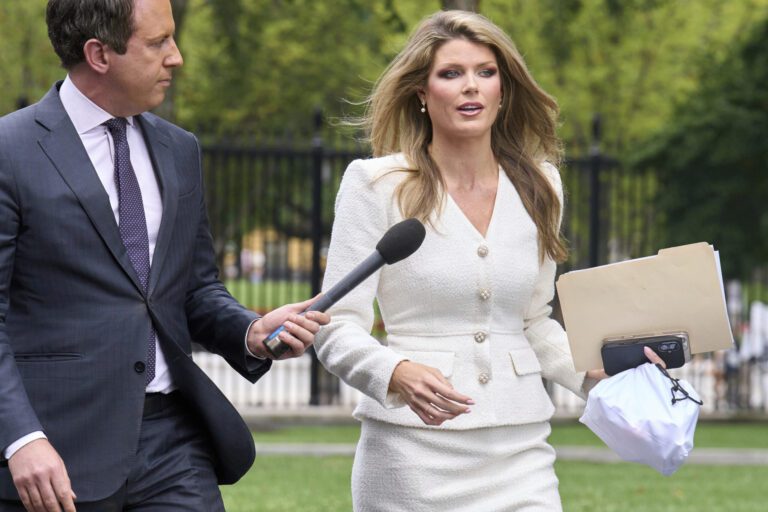Legal Showdown: Lindsey Halligan’s Prosecution of James Comey Under Scrutiny
As the Thanksgiving holiday approaches, the future of Lindsey Halligan, the interim U.S. Attorney for the Eastern District of Virginia, remains uncertain. A judge is deliberating whether to disqualify Halligan from her role amid her ongoing prosecution against former FBI Director James Comey.
An Ongoing Legal Battle
In a legal filing submitted to Judge Michael Nachmanoff on Thursday, Halligan countered Comey’s attempts to dismiss the charges against him. The indictment, issued in September, accuses Comey of lying to Congress regarding his awareness of FBI officials leaking information to the media during his tenure. Comey argues that the allegations have no merit and seeks dismissal based on several claims:
- Illegal Appointment: Comey asserts that Halligan’s appointment is unlawful.
- Vindictive Prosecution: He argues that the case is motivated by personal grievances.
- Ambiguity of Questions: Comey contends that the questions posed to him by Senator Ted Cruz in a September 2020 hearing were too ambiguous to constitute perjury.
Comey’s indictment stems from a virtual Senate Judiciary Committee hearing where he faced questioning from Cruz about official leaks.
Comey’s Defense: Ambiguity in Questioning
Comey’s defense hinges on the idea that the Senator’s inquiry was unclear. He argues that the phrasing of questions during the 2020 hearing made it impossible for him to knowingly provide false information.
In court documents filed Thursday, prosecutors representing Halligan countered:
“It is not for the court to decide whether the questions were cryptic; that is a jury’s responsibility.”
Courtroom Dynamics
Prosecutors highlighted a previous court opinion, emphasizing that determining the clarity of Cruz’s questioning is a matter for the jury:
- Quote from Prosecutors: “By ‘men of ordinary intellect,’ the meaning of Cruz’s questions is for a jury to decipher.”
- They argue that the notion of "compound questions" does not apply here, stating, “’Who’s telling the truth?’ is not a compound question.”
Comey’s case is further complicated by Halligan’s precarious position as she faces calls for her removal as U.S. Attorney from both Comey and New York Attorney General Letitia James, who are contesting the legality of her appointment.
The Legality of Halligan’s Appointment
Both Comey and James base their challenge on a 1986 Office of Legal Counsel memo indicating that federal district judges must appoint an acting U.S. attorney to replace a removed attorney. This memo—authored by Justice Samuel Alito—remains a focal point in their argument.
Recent Court Hearings
Judge Nachmanoff has referred the issue of Halligan’s appointment to Judge Cameron Currie of South Carolina. On Thursday, Currie scrutinized both parties during a hearing at the Eastern District of Virginia courthouse:
- Judge Currie’s Observations: She questioned the government’s legal team about missing grand jury transcripts, expressing concerns over the timeline between when the transcripts ended and the indictment was issued.
- Key Comment: “It became obvious to me that the attorney general could not have reviewed” the grand jury materials, casting doubt on Attorney General Pam Bondi‘s claim of oversight on the indictment.
Looking Ahead
As the case unfolds, the fate of both Lindsey Halligan and James Comey hangs in the balance. Halligan’s relentless pursuit of the charges, even while facing potential disqualification, keeps the legal community on high alert.
Conclusion
The coming weeks will prove critical as Judge Currie evaluates the merits of Halligan’s continued service and the charges against Comey. Legal experts and observers will be watching closely to see how this high-profile legal battle unfolds.
For continuous updates on this case, refer to trusted legal news sources such as The Hill and Politico.


